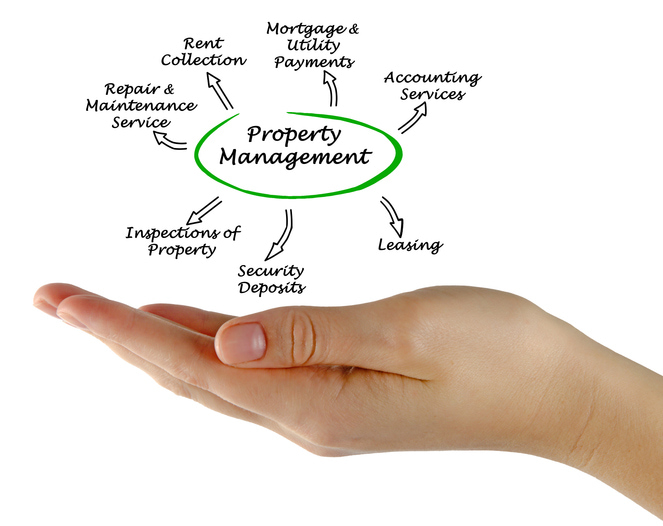Is your property management agency invested in your growth? Are your needs as the owner being met? Is your management company diligent in handling the complaints, issues, and disputes of your tenants? Are your units consistently occupied? Does the agency keep you well informed? Are you satisfied with the maintenance and repair of your property? Sometimes the property management company that you choose turns out to be less than a stellar fit. If this is your situation, it may be time to change your property management company.
When is it time to change your property management agency?
To determine if it is appropriate to change your property management agency, ask yourself these questions:
- Does the agency communicate with you clearly and regularly?
- Are the repair costs for your property reasonable?
- When a tenant is in arrears is the situation handled efficiently and quickly?
- Are you provided with regular performance reports?
- Are vacancies filled quickly?
- Are the rental fees reasonable?
- Are units filled with high-quality tenants (pay on time, stay long, respect the property)?
- Is the manager on good terms with your tenants?
- Are the management fees affordable and practical for your business?
- Are your tenants happy with the quality and timeliness of the services provided?
If you answered NO to several of these queries, it may be time to change your property management company.
Reasons to change your property management company:
There are some common reasons for switching property management agencies. Generally, three or more of these reasons are present before a property owner considers changing.
- Slow to respond: If your manager takes a long time to reply to your questions and/or is slow to fill vacancies, it may be time for a change.
- Subpar maintenance/repair: A reputable agency performs maintenance on a regular schedule, provides the landlord with inspection reports, and responds quickly and efficiently to tenant requests. If these services don’t meet your expectations, consider changing management agencies.
- Poor advertising: Does your agency advertise vacancies through a number of avenues (newspapers, online, real estate offices, community bulletins, signs, etc.) If not, consider changing.
- Inflated fees: If the fees charged by your management agency seem exorbitant and the company is not willing to negotiate, consider switching companies.
- Complaints: Consider it a red flag if your tenants complain to you about the service and/or treatment they receive from the management company.
- Poor advice: One of the advantages of hiring a management company is the insights they provide regarding the current market, potential rental properties, and appropriate rent levels. If the advice given is consistently poor, think about changing your agency.
- Unexpected fees: If your manager charges fees that are not in your contract, it may be time to move on.
- Low-quality tenants: It’s a management company’s responsibility to screen potential tenants to ensure they find high-quality renters (pay on time, respect the property, stay long). If they cannot fulfill this duty, they may not be the right choice for you.
- Poor communication: Expect regular performance reports and frequent communication from your manager. If this does not occur, it may be time for a change.
How To Change Property Management Companies
Changing property managers can be stressful. It’s a hassle! However, it’s important that you work with a company that fits your unique needs. Following are some steps to take when considering changing your management agency.
Identify and itemize the challenges experienced
Determine whether the challenges you’ve encountered are able to be addressed. If you decide they are, communicate with your property manager. Explain your concerns and ask for improvements. Set deadlines for the changes requested. If you decide your concerns are not able to be addressed, begin the search for a new agency. Keep in mind the problems you encountered when you’re considering a replacement.
Give notice
Provide your management company with 60 days’ notice via email, certified mail, or fax. Keep the communication professional. Notify unit owners of the upcoming change and get lease documents, financial records, keys, applications, renewals, and deposits from the outgoing management agency.

Create a proposal
Generate a request for proposal to provide potential management agencies information regarding what you are looking for in a management partnership. Include the following information in the proposal:
- Age of your building(s)
- Size of your building(s) and number of units
- Type of property (commercial, residential, mixed-use)
- Type and number of ongoing and planned improvement projects
- Expectations regarding communication and services to be provided
- Times you are available for a site visit
Arrange a site visit
A site meeting establishes the tone of communication, illuminates the complexity of your property, and gives you a chance to “feel out” the manager.
Create a list of questions
- What to ask potential management companies:
- What services do you offer?
- How long have you been in business?
- How do you determine rent amounts?
- How many and what type of properties do you manage?
- How many employees/staff do you have?
- Do you have a termination clause and, if so, what does it include?
- What is your practice(s) for communicating with owners, tenants, and condo councils?
- How long does it take for you to respond to queries, complaints, and/or concerns?
- Can you provide references?
- Do you encourage tenants to acquire renters insurance?
- Do I get input into the lease agreement?
- How do you ensure high-quality tenants?
- What and how often will I receive reports?
- What is your rate of eviction?
- What is your vacancy rate?
- What is the average time a property is vacant before you find new tenants?
- At what rate are your leases renewed?
- What marketing methods do you employ?
- What is your pricing structure?
- Do you charge for a property when it’s vacant?
Obtain a copy of their agency agreement and financial packages
Examine these closely paying particular attention to the exclusivity clauses, non-competition clauses, and termination requirements.
Sign your new agreement
Provide the new property management agency with the authority to act on your behalf. Communicate your expectations clearly.
Notify tenants of the change
Ensure tenants understand when the change will take place, encourage them to be patient with the process, allow for questions/concerns, and promote cooperation with the new company.
Take time and consider a number of agencies before choosing the one that is right for you. Ensure that the company you choose is in alignment with your needs and expectations. Though changing property management companies can be difficult, it’s often a necessary step to receive the quality, reliable service you desire.
Looking for an experienced, reliable, residential property management agency? Want a company known for excellence and integrity? Contact GIL Property Management & Sales Ltd. Our Calgary-based, highly-skilled residential sales team is eager to ensure your property is well maintained, occupied, and safe.


